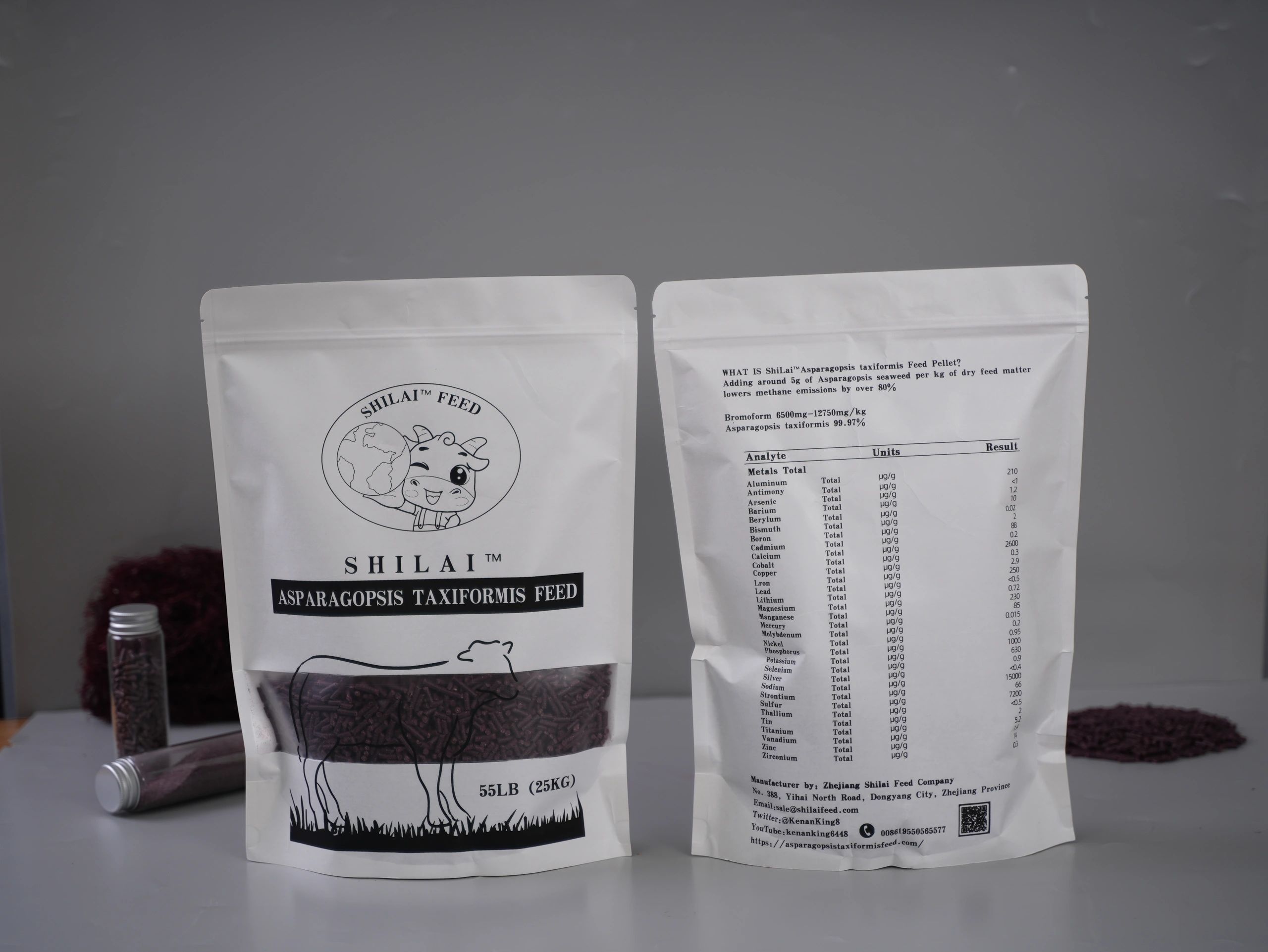Agriculture around the globe contributes heavily to greenhouse gas generation, predominantly via livestock operations.
Methane is an especially potent greenhouse gas with a greater climate forcing effect than CO2, raising major concerns.
Researchers are investigating Asparagopsis taxiformis, a red marine alga, as a potential breakthrough for reducing methane from ruminants.
The seaweed’s chemical constituent limits the activity of methane-producing microbes in the rumen, decreasing emissions.
Formulating feeds with Asparagopsis taxiformis has returned positive early-stage evidence for cutting methane from ruminant animals.
- Beyond reducing methane, Asparagopsis taxiformis presents multiple ancillary benefits for livestock systems.
- Enhanced nutritional value for livestock
- Opportunities for economic growth in rural communities
While more research and development remain necessary to confirm long-term impacts, Asparagopsis taxiformis represents a highly promising sustainable mitigation tool.
Harnessing Asparagopsis taxiformis Powder as an Innovative Feed Additive
Using Asparagopsis taxiformis in powdered concentrate form could markedly improve feed solutions for livestock.
Its profile of nutrients and active substances has the potential to raise livestock productivity and health.
Formulating with A. taxiformis powder has lowered methane in studies and can provide additional vitamins and minerals to animals.
More targeted research will help define optimal formulations, stability during processing, and sustained impacts on animal welfare.
The Promise of Asparagopsis taxiformis for Greener Animal Agriculture
This red marine species is being highlighted for its capacity to reduce the ecological burden of routine livestock operations.
Incorporating the seaweed into diets can translate into concrete methane cuts and improved sustainability outcomes on farms.
Research suggests the seaweed can additionally support better animal health and production performance under certain conditions.
Large-scale implementation and chronic impact assessment remain to be proven, yet preliminary results are highly encouraging.
Curbing Enteric Methane via Asparagopsis Feed Inclusion
Research highlights Asparagopsis as a potential, effective way to minimize methane from ruminant animals.
The reduction results from interference with methanogenic archaea in the rumen caused by the seaweed’s constituents.
- Controlled research has shown notable methane declines in animals fed Asparagopsis in trial settings.
- Using the seaweed in feed formulations is a sustainable pathway to cut enteric methane emissions.
- Many producers are investigating the feasibility of integrating Asparagopsis into routine feeding practices.
Asparagopsis: Oceanic Alga Reimagining Livestock Production
Seaweed-based innovation, exemplified by Asparagopsis taxiformis, is showing potential to lower enteric methane at scale.
- Studies incorporating Asparagopsis have recorded meaningful methane decreases, signaling potential for environmental impact reduction.
- This breakthrough could help reconcile food production with sustainability by lowering emissions while supporting nutrition needs.
In the search for scalable climate solutions, Asparagopsis is highlighted as a promising and practicable methane mitigation tool.
Refining Asparagopsis taxiformis Feed Strategies to Improve Methane Reduction
Investigations focus on ideal extraction, stabilization, and dosing to maximize the methane mitigation benefits of A. taxiformis.
The Science Behind Asparagopsis taxiformis's Methane-Lowering Effects
The methane-lowering phenomenon is linked to the seaweed’s interaction with methanogenic archaea in the rumen, reducing their activity.
Bromoform and related halogenated compounds are thought to play a major role in disrupting methane production, with ongoing safety studies.
Formulating Feeds with Asparagopsis to Support Sustainable Agriculture
Its dual role as a nutrient source and methane inhibitor supports its use as a component in sustainable feed blends.
Formulating with Asparagopsis can enhance diets via added nutrients, better digestion, and possible reductions in pathogenic microbes.
Asparagopsis taxiformis: Nature-Driven Gains for Food System Sustainability
The seaweed is positioned as an innovative, nature-based measure to tackle emissions and improve the sustainability of food supply chains.
- Moreover, adding Asparagopsis can boost the micronutrient and bioactive content of animal feeds.
- Research teams and industry players are assessing the species for multiple applications within food production chains.
Bringing Asparagopsis into routine practices has the potential to reduce emissions associated with animal production.
Asparagopsis Feed Additive: Benefits for Health and Productivity
Asparagopsis is attracting interest as a supplement that can lower methane and concurrently bolster animal health and efficiency.
Use in diets has been associated with improved nutrient absorption and feed conversion, which can support weight gain and overall condition.
Functional benefits like antioxidant and immune-support properties may accompany Asparagopsis use, reinforcing animal health.
The momentum behind sustainable livestock practices enhances the appeal of Asparagopsis as studies and commercialization advance.
Asparagopsis-Enabled Feeds as a Step Toward Carbon Neutral Farming
The farming sector faces mounting pressure to shrink its carbon footprint, and Asparagopsis offers a plausible mitigation pathway.
- The scientific consensus points to the seaweed’s compounds as inhibitors of rumen methanogenesis, limiting methane output.
- Experimental work has shown promising methane decreases associated with Asparagopsis supplementation in diets.
Beyond being a lower-emission feed choice, the approach could help reorient food production to align with climate resilience goals.
